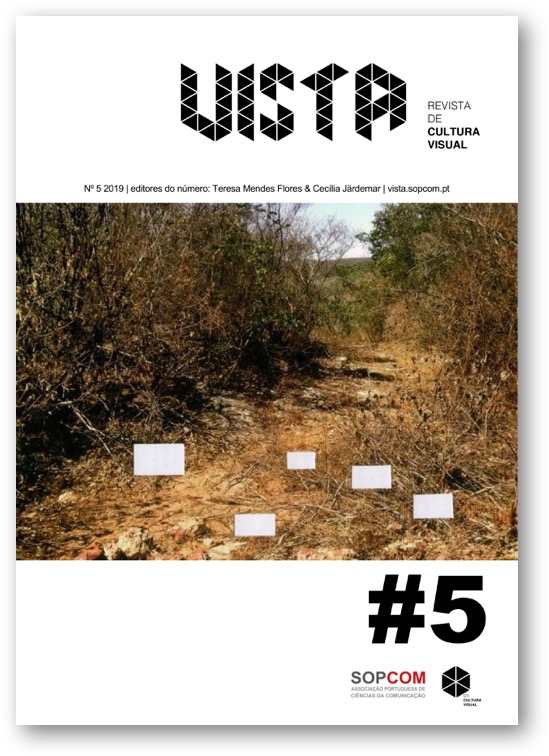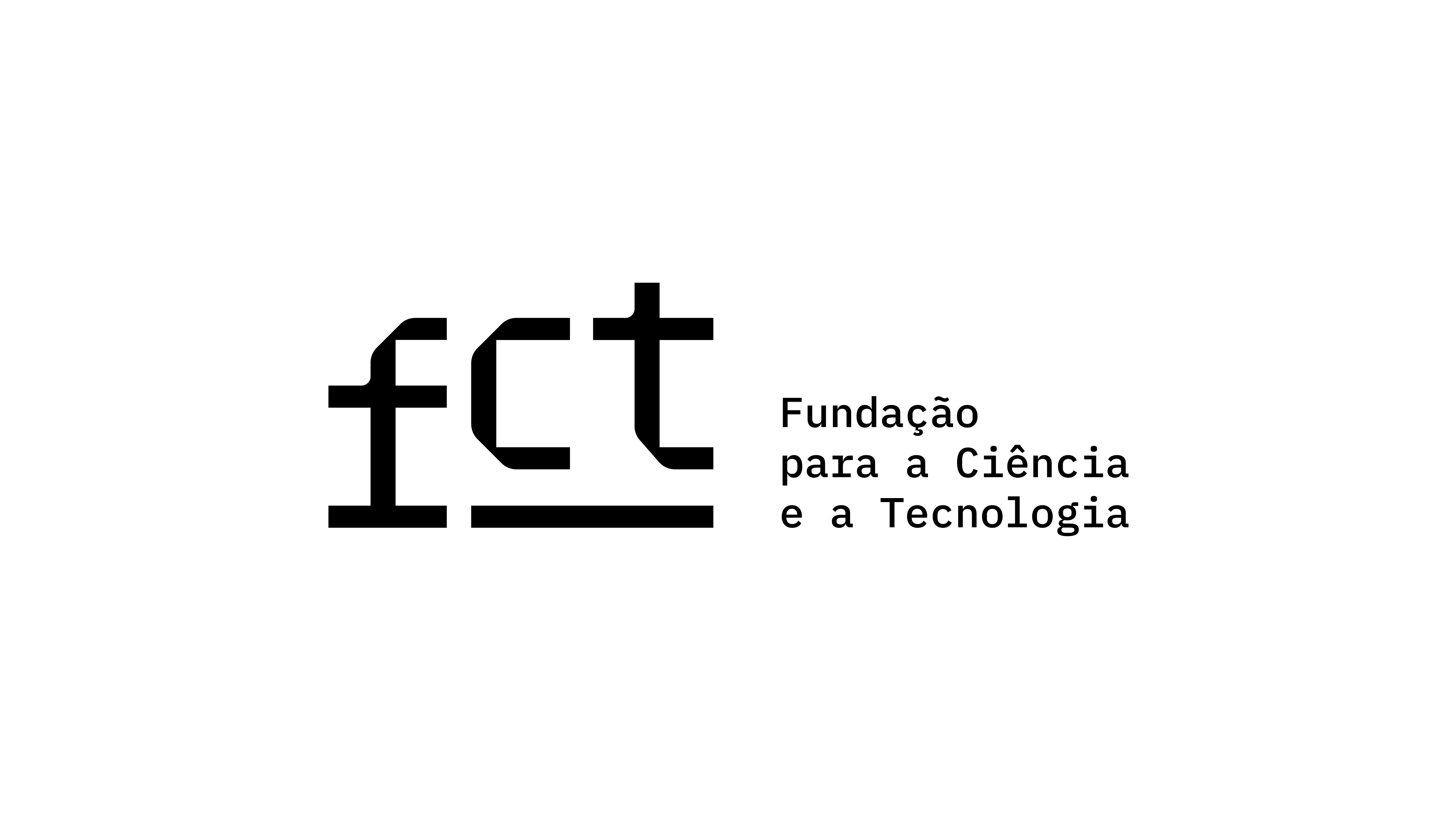Epistemic Decolonization through the Colonial, Anti- and Post-Colonial Archive in Contemporary Art
DOI:
https://doi.org/10.21814/vista.3050Abstract
This visual essay comprises a selection of works made by artists from several generations and geographies, who contribute to an epistemic decolonization in, and of, the present by means of archival research. With works by Kiluanji Kia Henda (Angola, 1979), Filipa César (Portugal, 1975), Olavo Amado (São Tomé and Príncipe, 1979), Ângela Ferreira (Mozambique, 1958), Eurídice Kala aka Zaituna Kala (Mozambique, 1987), Délio Jasse (Angola, 1980), Daniel Barroca (Portugal, 1976), Filipe Branquinho (Mozambique, 1977), and Mónica de Miranda (Portugal/Angola, 1976), I propose a possible reading of the various ways in which contemporary artists have been working critically with colonial archives, not only public, but also private and familial, in view of a decolonizing memorialization of Portuguese colonialism and an understanding of its profound and multifarious impact in contemporary societies – notably regarding structural and institutional racism in Portugal, and enduring patterns of coloniality and neo-colonialism in Angola, Mozambique, Cape Verde, Guinea-Bissau, and São Tomé and Príncipe.
Downloads
References
Balona de Oliveira, A. (2016a). Images and Sounds of Revolution between the Towering and the Underground. In Ângela Ferreira: Underground Cinemas and Towering Radios. Lisboa: EGEAC-Galerias Municipais.
Balona de Oliveira, A. (2016b). Archival Past Futures of Revolution and Decolonization in Contemporary Artistic Practice from and about ‘Lusophone’ Africa. In Red Africa: Affective Communities and the Cold War. Ed. Mark Nash. London: Black Dog Publishing.
Balona de Oliveira, A. (2016c). Os Hóspedes do Globo: (Des-)Mapeando a Memória da Cidade Vertical com a Horizontalidade do Corpo. Buala. https://www.buala.org/pt/vou- la-visitar/os-hospedes-do-globo-des-mapeando-a-memoria-da-cidade-vertical-com-a- horizontalidad-0.
Balona de Oliveira, A. (2016d). Decolonization in, of and through the Archival ‘Moving Images’ of Artistic Practice”. Comunicação e Sociedade 29: 131-152.
Balona de Oliveira, A. (2016e). De Mercados de Rua, Álbuns de Guerra e Filmes de Família à Prática Artística Contemporânea: Descolonizando o Presente através do Arquivo Colonial. Atas do V Encontro Anual da AIM. Ed. Sofia Sampaio, Filipe Reis, Gonçalo Mota. Lisboa: AIM.
Balona de Oliveira, A. (2017a). A Decolonizing Impulse: Artists in the Colonial and Post- Colonial Archive, Or the Boxes of Departing Settlers between Maputo, Luanda and Lisbon. In (Re)Imagining African Independence: Film, Visual Arts and the Fall of the Portuguese Empire. Ed. Maria do Carmo Piçarra, Teresa Castro. Oxford: Peter Lang.
Balona de Oliveira, A. (2017b). Globo Lodgers: (Un-)Mapping the Memory of the Vertical City with the Horizontality of the Body. In Mónica de Miranda: Geography of Affections (2012-2016). Lisboa: Mónica de Miranda (edição de artista).
Balona de Oliveira, A. (2017c). Panoramic in Moving Fragments, Or Mónica de Miranda's Twin Visions of (Un)Belonging. Buala. https://www.buala.org/en/ill-visit/panoramic-in- moving-fragments-or-monica-de-miranda-s-twin-visions-of-unbelonging.
Balona de Oliveira, A. (2018). Panoramic in Moving Fragments, Or Mónica de Miranda's Twin Visions of (Un)Belonging. In Atlantica: Contemporary Art from Angola and its Diaspora. Lisboa: Hangar Books, Orfeu Negro & CEC-FLUL.
Balona de Oliveira, A. (2019a). Diálogos Artísticos, Transdisciplinares e Intergeracionais: Práticas Artísticas Contemporâneas e o Imaginário de Ruy Duarte de Carvalho. In Diálogos com Ruy Duarte de Carvalho. Lisboa: Buala & CEC-FLUL.
Balona de Oliveira, A. (2019b). Falling Radio Towers and Flying Mausoleums: Iconographies of Revolution and Utopia in the work of Ângela Ferreira and Kiluanji Kia Henda. In Revolution 3.0: Iconographies of Radical Change. Munich: AVM.edition.
Balona de Oliveira, A. (2019c). Panoramas de Fragmentos Móveis, Ou Visões Gémeas de (Des)Pertença na Obra de Mónica de Miranda. Revista Vazantes 3 (1): 5-16.
Cabral, A. (1988). Estudos Agrários de Amílcar Cabral. Lisboa & Bissau: Instituto de Investigação Científica Tropical & Instituto Nacional de Estudos e Pesquisa.
Cabral, A. (2013). A Arma da Teoria. Unidade e Luta I. Org. Mário Pinto de Andrade. Praia: Fundação Amílcar Cabral.
Castelo, C. (1998). O Modo Português de Estar no Mundo: O Lusotropicalismo e a Ideologia Colonial Portuguesa, 1933-1961. Porto: Edições Afrontamento.
César, F. (2012). Luta Ca Caba Inda (La lutte n’est pas finie). Paris: Jeu de Paume.
César, F.; Hering, T.; Rito, C. (2017). Luta Ca Caba Inda: Time Place Matter Voice. 1967–2017. Berlin: Archive Books.
César, F. (2018a). The Struggle Is Not Over Yet: An Archive in Relation. Berlin: Archive Books.
César, F. (2018b). Meteorisations: Reading Amílcar Cabral’s Agronomy of Liberation. Third Text 32 (2-3): 254-272.
Derrida, J. (1994). The Specters of Marx: The State of the Debt, The Work of Mourning, and the New International. London: Routledge.
Godard, J-L. (1979). Le dernier rêve d’un producteur, Nord contre Sud ou Naissance (de l’image) d’une nation. Cahiers du Cinéma 300 : 70–129.
Gordon, A. (2008). Gosthly Matters: Haunting and the Sociological Imagination. Minneapolis: University of Minnesota Press.
Heywood, L. (2017). Njinga of Angola: Africa's Warrior Queen. Cambridge, Ma.: Harvard University Press.
Neto, A. (1977). Sagrada Esperança. Luanda: União dos Escritores Angolanos.
Ondjaki (2008). Avó Dezanove e o Segredo do Soviético. Lisboa: Caminho.
Piçarra, Maria do Carmo. 2015. Azuis Ultramarinos: Propaganda Colonial e Censura no Cinema do Estado Novo. Lisboa: Edições 70.
Ractliffe, J. (2008). Terreno Ocupado. Johannesburg: Warren Siebrits.
Sapega, E. (2002). Image and Counter-Image: The Place of Salazarist Images of National Identity in Contemporary Portuguese Visual Culture. Luso-Brazilian Review 39 (2): pp. 45-64.
Sapega, E. (2008). Staging Memory: ‘The Most Portuguese Village in Portugal’ and the Exposition of the Portuguese World. In Consensus and Debate in Salazar’s Portugal: Visual and Literary Negotiations of the National Text, 1933-1948. University Park, PA: Pennsylvania State University Press.
Stoler, A. L. (Ed.). (2013). Imperial Debris: On Ruins and Ruination. Durham and London: Duke University Press.
Downloads
Published
How to Cite
Issue
Section
License

This work is licensed under a Creative Commons Attribution 4.0 International License.
Authors own the copyright, providing the journal with the right of first publication. The work is licensed under a Creative Commons Attribution 4.0 International License.









